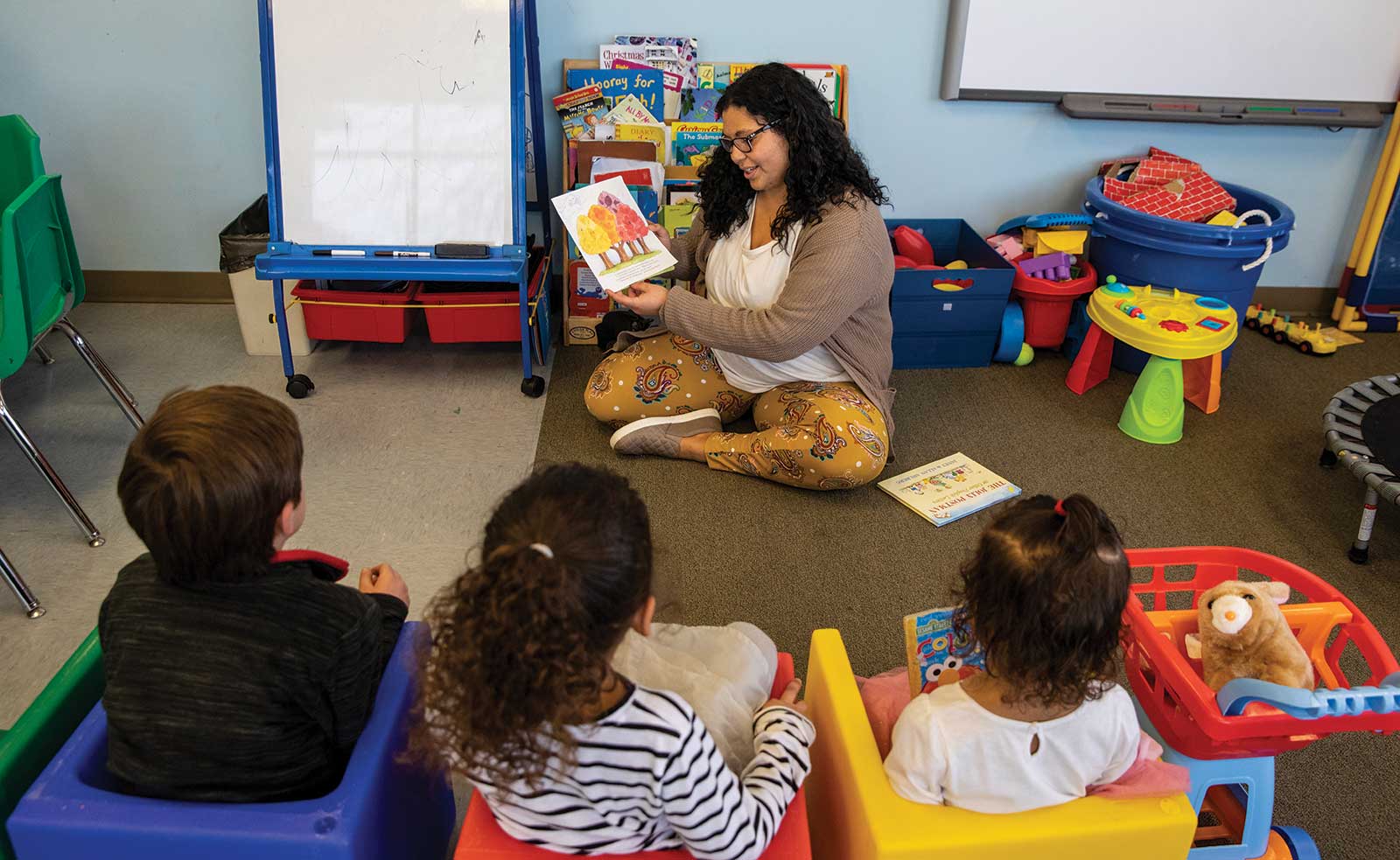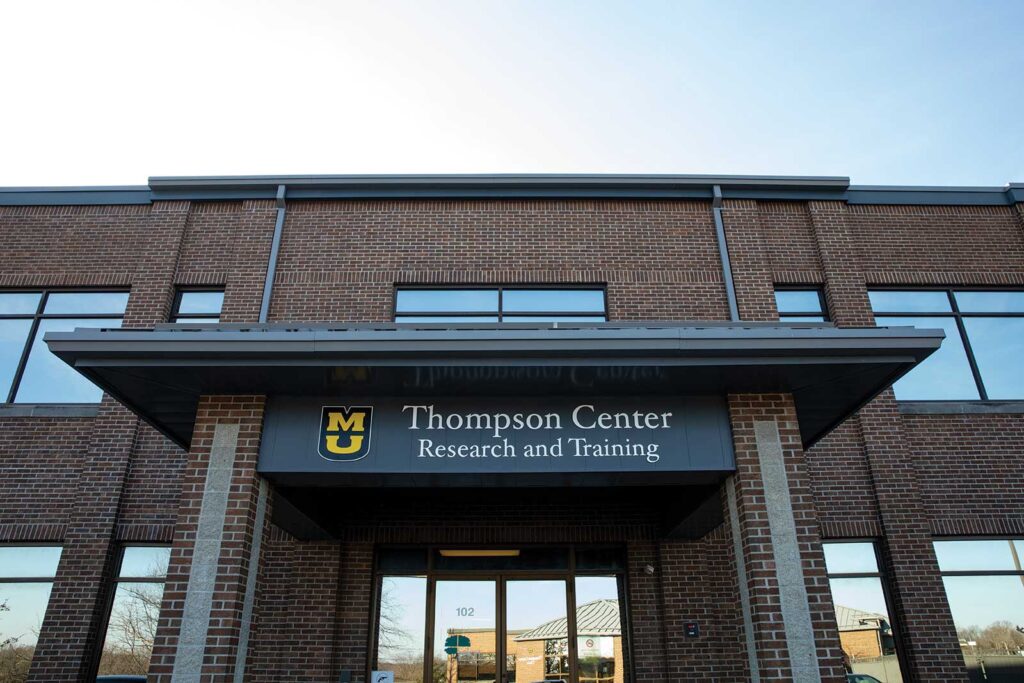Bridging the Gap
- Photos provided by MU Thompson Center for Autism & Neurodevelopmental Disorders

The MU Thompson Center for Autism and Neurodevelopmental Disorders helps support people with autism, families, and the community.
According to the Centers for Disease Control and Prevention, as of 2016, nearly 1 in 54 children has been diagnosed as autistic. This number has almost tripled since 2000, which is likely due to increasing awareness and research in the field.
An important part of that research has been done at the MU Thompson Center for Autism and Neurodevelopmental Disorders.
The Thompson Center’s Dr. Kerri Nowell explains that autism is not a one-size-fits-all diagnosis. “There’s a saying that we have — when you meet one person with autism, you have met one person with autism,” she says. “There is so much variability in terms of the strengths and weaknesses. We work with children who may have no language at all, don’t make eye contact, or have learning difficulties, but then, on the other end of the spectrum, we work with children who appear very social and intelligent. Both of these individuals have autism — they just look very different.”
Because autism has so many variables that may be overlooked or unaccounted for, it’s important that support facilities offer a wide range of resources for their patients.
“The Thompson Center itself offers an incredible breadth of services for families who are impacted by neurodevelopmental disorders, specifically autism,” says Kerri.

Though its patients are mainly younger people, the Thompson Center works across the board to serve people with autism, their families, and the Columbia community. Services start at the very beginning with diagnostic tests if someone is questioning whether or not their child may be autistic. They also offer intervention services, training and education, research, consultation in schools, and a medical division, where developmental pediatricians will follow families every step of the way, monitoring for co-occurring conditions like seizures or eating difficulties.
Kerri sums it up by saying, “Really, the overarching goal is to support families in all aspects of life, making sure that they have a one-stop-shop where they can get access to all those different services.”
Additionally, the Thompson Center has an autism-friendly business program where local businesses can get the education they need to make their shops and storefronts more accessible for autistic people. The program provides psychoeducation to business owners about what autism is and what it may look like in different people. This education helps the community better understand autism and what supports can be put into place to help people with autism navigate local businesses.
“Being different or not typically developing is not a bad thing,” Kerri stresses. “You may not know someone has autism,” which is why it is important to recognize that there are many neurodiverse people in the Columbia community.
The Thompson Center for Autism and Neurodevelopmental Disorders
University of Missouri
205 Portland St.
573-884-6052


